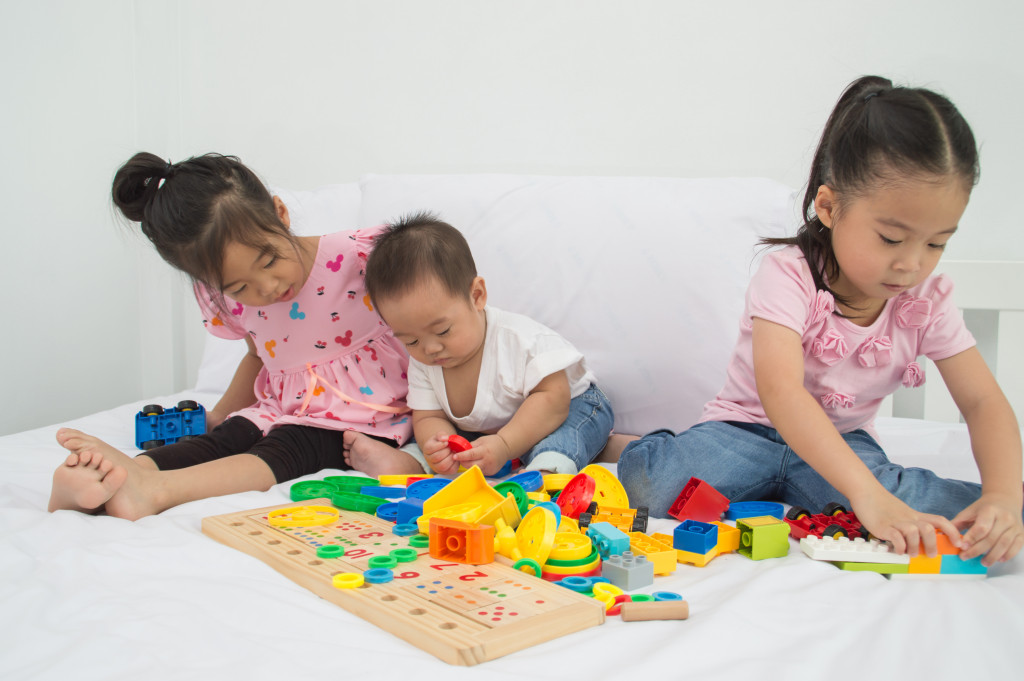As a parent, you want to ensure that your child is healthy and growing properly. You can do many things to help promote healthy growth for your child. Here are some expert tips on ensuring a healthy development for your child. With these helpful hints, you can rest assured that your little one is on track for a bright future.
A child needs a lot of sleep.
Sleep is essential to a child’s development – during sleep, their bodies grow, and their minds expand. To ensure they receive the necessary rest, children need to sleep between 12 and 14 hours daily. This will help them to stay alert and learn appropriately during the day.
Furthermore, sleep quality plays a vital role in a child’s overall health: with frequent and consistent restful nights, children can strengthen their immune systems and fend off illnesses. Parents should work towards creating healthy sleep routines for their kids to keep them safe and sound.
Have regular checkups.

Parents must opt for reliable pediatric care services to ensure their child’s health and well-being. They can feel secure knowing their child will receive the best care and treatment by choosing a reliable provider.
Pediatricians are specially trained in diagnosing and treating children’s illnesses and issues – such as developmental delays or allergies – and can guide parents through various medical procedures. Regular check-ups ensure that any issues are quickly identified and addressed, helping to avoid potential future health problems while providing significant peace of mind and comfort for the family.
Moreover, regular visits allow the doctor to monitor any changes in a child’s development or behavior so that they can provide timely advice tailored to their unique needs. Regular check-ups should be considered essential to a child’s development and overall health.
A healthy diet is essential.
A balanced diet rich in fruits, vegetables, and whole grains is critical for a child’s healthy growth. Fruits and vegetables provide vital nutrients like vitamins and minerals necessary for immunity boosting, strong bones, and the development of good vision.
Whole grains offer fiber that helps keep a child feeling full longer and regulate their digestion – crucial for sustainable energy throughout the day. Creating delicious meals around these foods can be fun and rewarding, too – once children have developed a taste for them, they’re sure to make up the foundation of their long-term diet!
Exercise is important.
Exercise is essential for children of all ages as it helps promote healthy physical growth. It assists with coordination, as activities such as sports, swimming, and dance help to encourage balance and agility. Exercise also works to increase flexibility which protects joints from strain and injury.
Finally, exercise is essential for strength building, helping to ensure that bones remain healthy and strong throughout the development pathways. As many experts agree, engaging in physical activity several times a week is key to the healthy development of any child – no matter their age – and reaps wholesome rewards both now and in the future.
Limits should be set on screen time.
You should limit screen time for young children; this is due to the myriad of potential health risks associated with too much use. Experts suggest no more than two hours per day for those under the age of 5 and only one hour per day for those under the age of 2.
This ensures that a child can develop healthily, free from any potential issues caused by prolonged periods in front of a screen. Studies have shown that too much screen time can result in sleep problems, obesity, and poorer self-esteem.
It is also essential to focus on the alternatives such as physical activities and reading or listening to stories together. Setting limits on screen time helps young ones remain socially engaged without sacrificing their physical or mental well-being.
Children need to socialize with other kids.
Children require social interaction with other children to practice appropriate reactions and communication skills. Exposure to different personalities, ages, and temperaments also helps foster self-confidence and empathy.
This time spent around others can be invaluable in establishing a child’s emotional security. Children learn from the people around them how to read social signs, make conversation, and cooperate and compromise – all essential skills for their future development.
Without regular playdates or daycare, young children may lack the opportunity to interact with a variety of people learn conflict resolution and cooperation, or the chance to pick up new choices from hearing language from peers that they may never hear at home. With fun activities and encouragement from parents, this become an enjoyable experience for both parent and child!
Ensuring the healthy growth of your child requires dedication and effort but it is worth it. By following these simple tips, you can help your child grow into a happy and healthy individual. Try incorporating some of these suggestions into your daily routine and see how they impact your child’s development.



